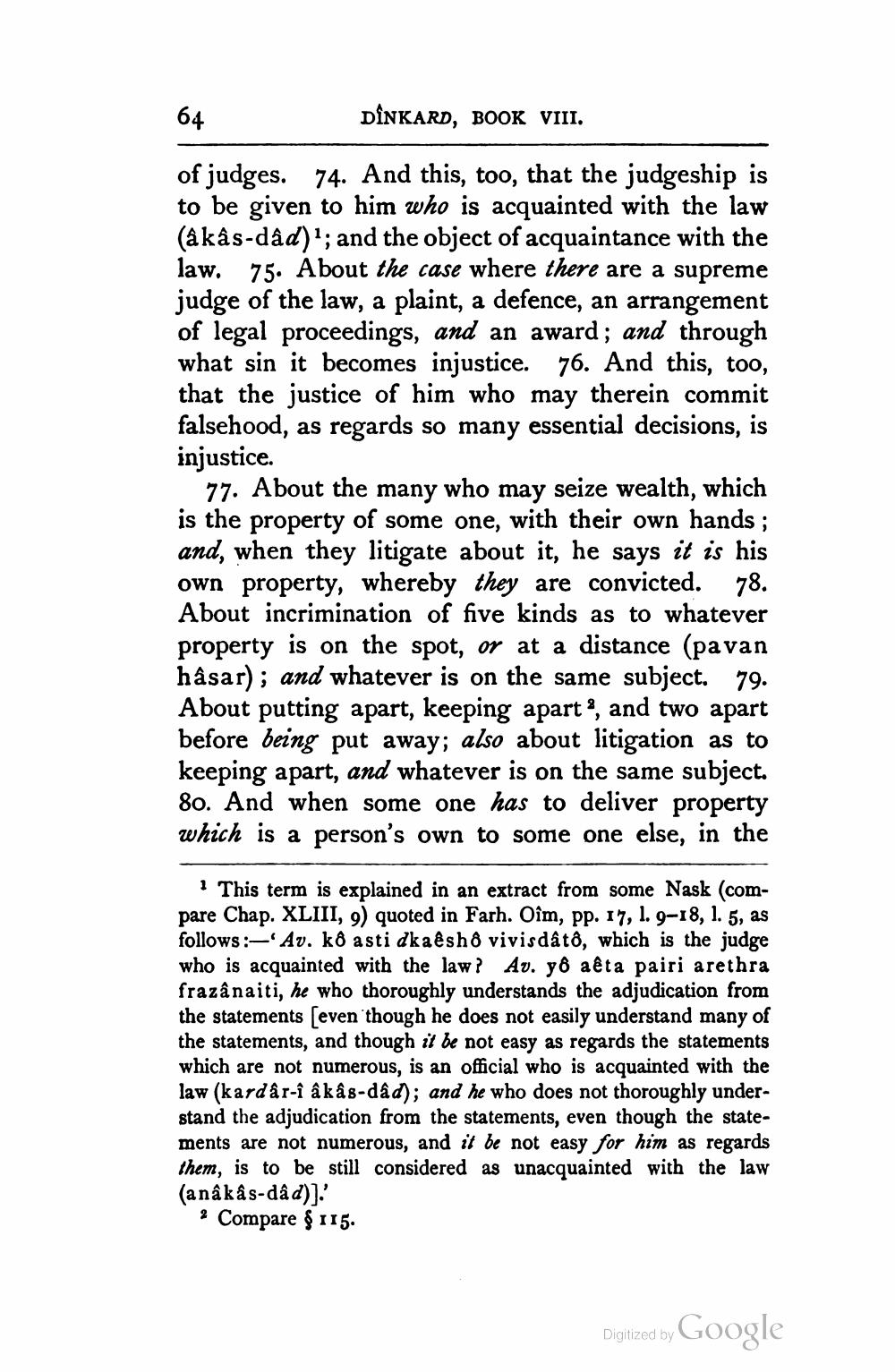________________
64
DINKARD, BOOK VIII.
of judges. 74. And this, too, that the judgeship is to be given to him who is acquainted with the law (âkâs-dâd)1; and the object of acquaintance with the law. 75. About the case where there are a supreme judge of the law, a plaint, a defence, an arrangement of legal proceedings, and an award; and through what sin it becomes injustice. 76. And this, too, that the justice of him who may therein commit falsehood, as regards so many essential decisions, is injustice.
77. About the many who may seize wealth, which is the property of some one, with their own hands; and, when they litigate about it, he says it is his own property, whereby they are convicted. 78. About incrimination of five kinds as to whatever property is on the spot, or at a distance (pavan hâsar); and whatever is on the same subject. 79. About putting apart, keeping apart, and two apart before being put away; also about litigation as to keeping apart, and whatever is on the same subject. 80. And when some one has to deliver property which is a person's own to some one else, in the
This term is explained in an extract from some Nask (compare Chap. XLIII, 9) quoted in Farh. Oîm, pp. 17, l. 9-18, 1. 5, as follows:- Av. ko asti dkaêshô vivisdâtô, which is the judge who is acquainted with the law? Av. yo aêta pairi arethra frazânaiti, he who thoroughly understands the adjudication from the statements [even though he does not easily understand many of the statements, and though it be not easy as regards the statements which are not numerous, is an official who is acquainted with the law (kardâr-î âkâs-dâd); and he who does not thoroughly understand the adjudication from the statements, even though the statements are not numerous, and it be not easy for him as regards them, is to be still considered as unacquainted with the law (anâkâs-dâd)].'
2 Compare § 115.
Digitized by
Google




